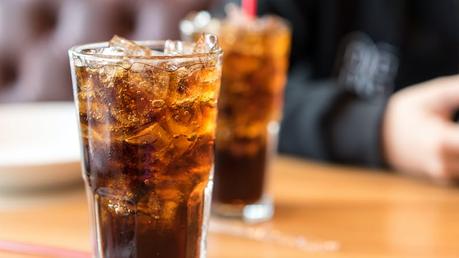
Can replacing sugar-sweetened beverages with either sugar-free or unsweetened beverages decrease heart health risk factors, prevent weight gain, and reduce preferences for sweet tastes?
That's the question a group of researchers, including David Ludwig, MD, set out to answer in a recently published trial:
Journal of the American Heart Association: Effects of sugar‐sweetened, artificially sweetened, and unsweetened beverages on cardiometabolic risk factors, body composition, and sweet taste preference: a randomized controlled trialIn this study, 203 adults who regularly consumed at least one sugar-sweetened beverage daily were randomly assigned to receive home deliveries of sugar-sweetened beverages, artificially-sweetened beverages, or unsweetened beverages (water or sparkling water) for 12 months.
Aside from being given instructions to consume their assigned beverages and refrain from consuming other types, the participants weren't told to make any changes to their usual diets. They received check-in calls every two weeks to confirm that they were consuming the beverages, as well as to encourage compliance.
After 12 months, the average change in the ratio of triglycerides to HDL cholesterol wasn't significantly different among the three groups. Similarly, changes in insulin resistance, fasting blood sugar, and markers of inflammation were found not to differ significantly among the groups.
The researchers suspect this may have been because those in the groups assigned to consume artificially-sweetened beverages or unsweetened beverages may have added other refined carbs to their diets.
All three groups had little to no change in body weight and fat, overall. However, among participants who had the most abdominal fat at the beginning of the study, those who consumed sugar-sweetened beverages gained an average of nearly 10 pounds (4.4 kg), including 6 pounds (2.8 kg) of body fat. By contrast, those with the most abdominal fat who were randomized into the unsweetened beverages group lost a small amount of body fat.
At the end of the study, when tested with sweet foods, those in the unsweetened beverages group perceived them as being much sweeter than those in the other two groups did. They also had had less preference for sweets, which occurred to a lesser extent among those in the artificially-sweetened beverages group and not at in the sugar-sweetened beverages group.
The three main conclusions of the researchers were:
- Overall diet quality matters.
- Replacing sugar-sweetened beverages with either artificially-sweetened or unsweetened beverages may be helpful for people with excess abdominal fat.
- Because they reduce sweet taste preferences, drinking unsweetened rather than artificially-sweetened beverages may make it easier for people to stick to low-sugar diets.
At Diet Doctor, we believe that eliminating sugar-sweetened beverages is one of the best things people can do to quickly and dramatically improve their health. In fact, it's the first step in our guide, Eating better: Six steps down the carb mountain.
We also feel that many people are best off learning to enjoy unsweetened beverages and foods, while others may find that occasionally using keto-friendly sweeteners makes it easier for them to stay low carb for life.
More posts
Keto drinks - the best and the worst Do artificial sweeteners affect blood sugar? Is there any real evidence that diet drinks are bad for you - or is it all just opinion?Start your FREE 30-day trial!
Get delicious recipes, amazing meal plans, video courses, health guides, and weight loss advice from doctors, dietitians, and other experts.

